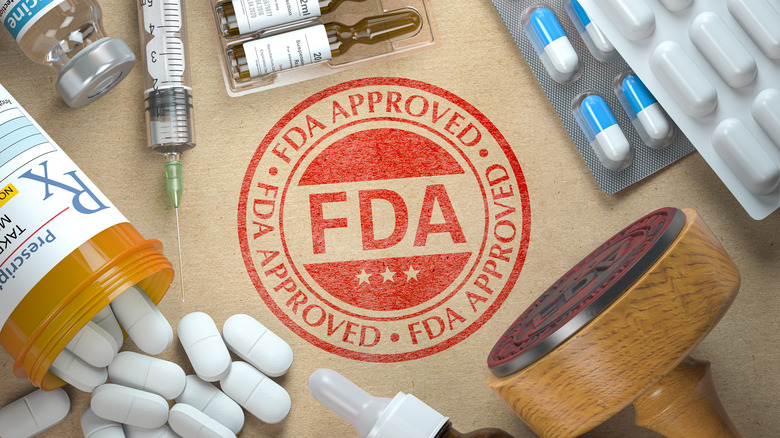What's The Difference Between FDA Approval And Emergency Use Authorization?
The last few years have been a largely unexpected and widely unwanted crash course in new terms and concepts. Technology has been on a rocket-fast trajectory for decades now and many people struggle to keep up with all the new terms and applications. But the last few years have seen medical terminology and development picking up the pace as well. And the ongoing COVID-19 cases have only served to highlight the process.
In a 2020 post to the American Society of Clinical Oncology, Dr. Inas Abuali wrote that medical discoveries are growing "exponentially." This kind of growth makes it hard for medical professionals to stay on top of the newest developments and studies, as Dr. Abuali notes. And if it's hard for professionals, it's understandably even more difficult for people outside the medical profession.
Understandable though it may be, the mystery around most medical terms is a problem for the average person. It's not usually a big problem, but that changed with the onset of COVID. As the disease spread, it became more and more important for the average person to know what different medical terms meant. And few seemed as confusing — or as important — as the distinction between a drug with FDA approval and one with Emergency Use Authorization.
How FDA approval and Emergency Use Authorization differ
The use of an Emergency Use Authorization (EUA) — and in some cases even its general existence — wasn't widely known prior to the release of the first COVID vaccines. But once the vaccines were announced, many people were concerned that they had EUA status rather than full FDA approval.
Some people feared that an EUA meant a vaccine was untested, but Yale Medicine explains that this is far from true. In the case of the COVID vaccine, for example, an EUA meant that at least half of test participants had to be followed for two months after vaccination instead of the six months required for full FDA approval.
Yale Medicine also points out that COVID vaccines are not the first time EUAs have been issued. The EUA program was established in 2004 in response to a variety of anthrax threats and its protocols have been called on several times. An anthrax vaccine, antiviral treatments, various testing methods, and even personal protection equipment have all been released under EUA protocols to combat such issues as Ebola and H1N1.
The FDA relies on an EUA when there are no other medically or scientifically proven methods available to address a widespread public health crisis. And few crises in the past 18 years have reached the levels that COVID has. So while the terms may be confusing, EUAs are just another essential step in the protection of public health.


